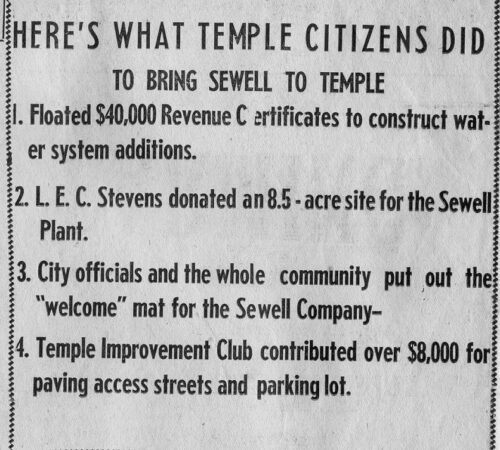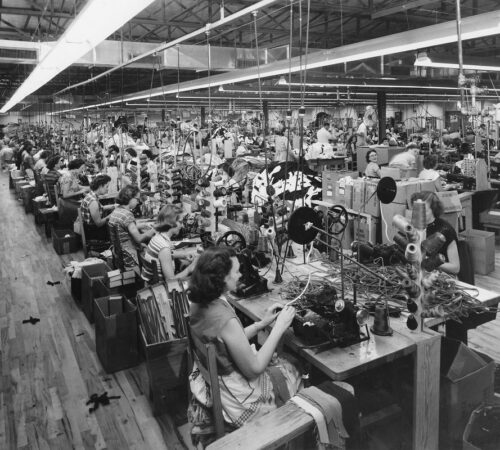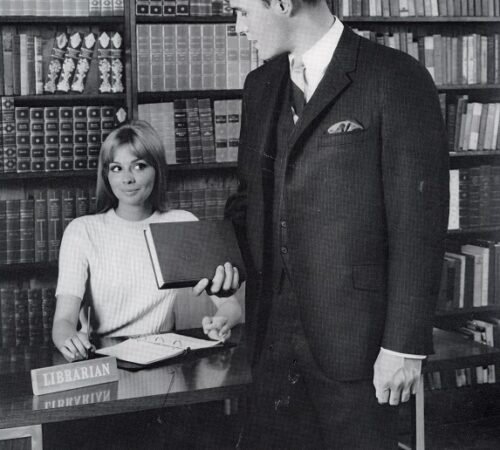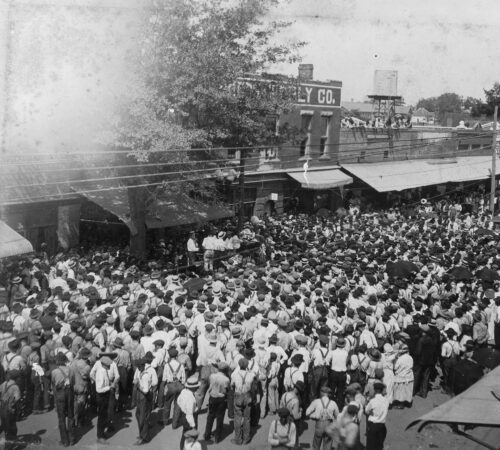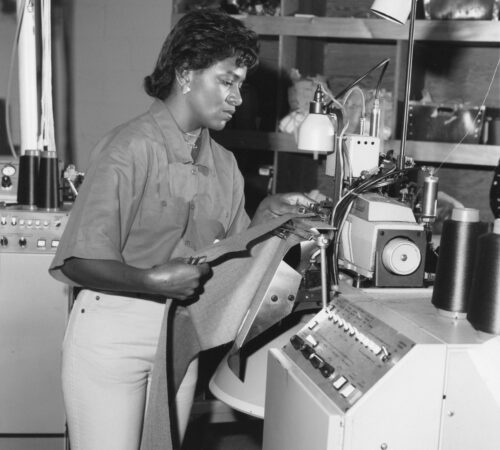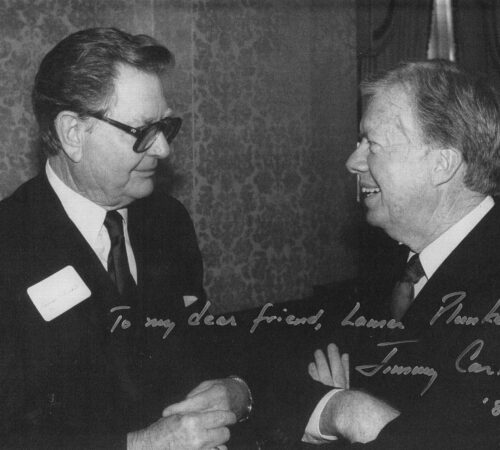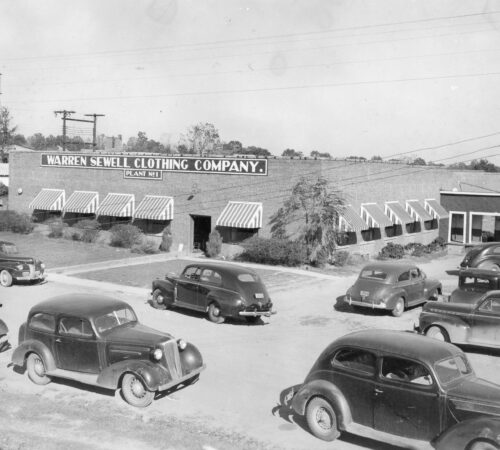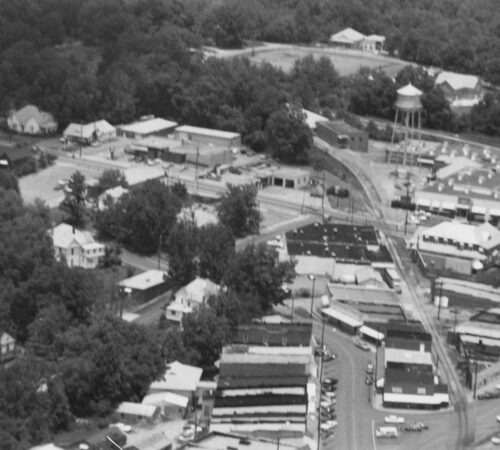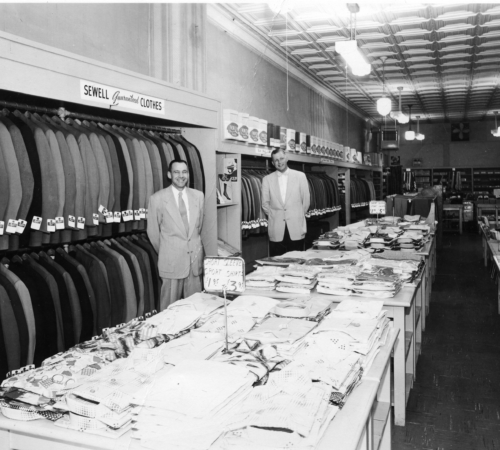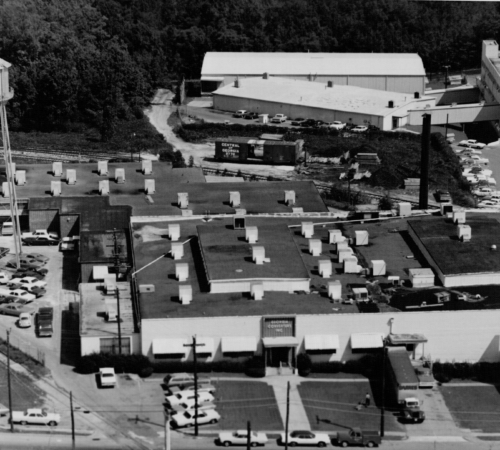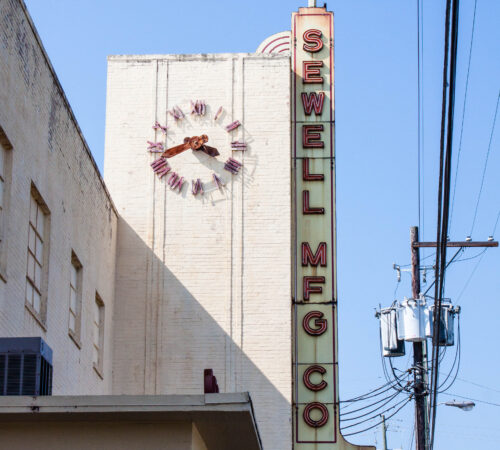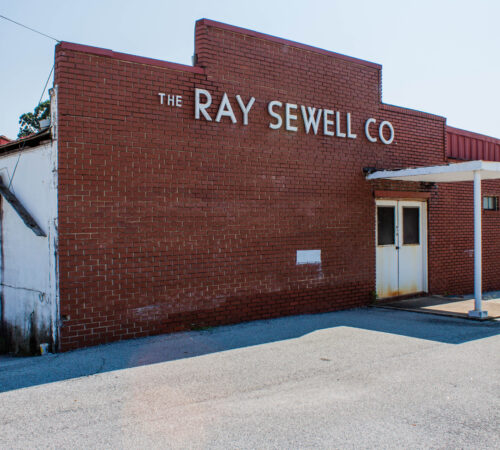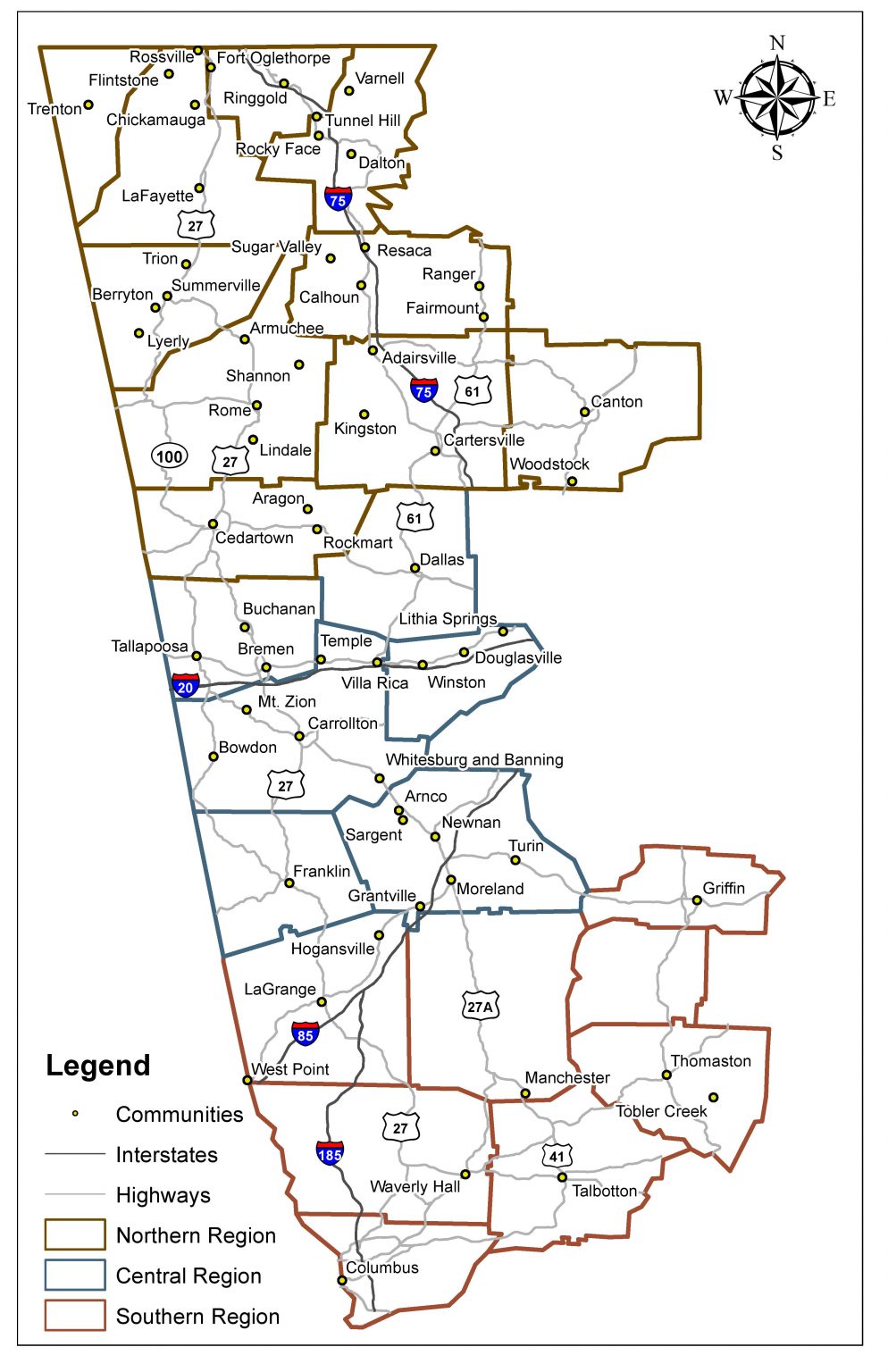This town’s manufacturing plant was a small division of a larger Georgia company.
Starting in 1928, the Sewell brothers began operating Sewell Manufacturing Company in Mount Zion. The building that housed this company is now the Mount Zion Public Library.
Visit
Things to Do
- Mt. Zion Public Library, 4455 Mount Zion Road: The city converted the Ray Sewell Manufacturing facility into a public library after the company shut down in the 1980s. Visit the library to see historic photos of the site and to view an example of mid-century industrial architecture!
History

The production of men’s apparel was unique to central west Georgia. In 1919, brothers Robert, Roy, and Warren Sewell operated a “jobbing” company in Atlanta, contracting men’s clothing in New York and selling those clothes under their own labels here in Georgia. Headquartered in Bremen, Georgia, by 1928, their Sewell Manufacturing Company began manufacturing men’s suits and coats themselves. As the Sewell’s company grew, it expanded operations several times in the west Georgia region. Eventually, each Sewell brother created his own manufacturing company.
Entrepreneur Ray Sewell Sr., nephew of Roy and Warren Sewell, opened his own clothing company, The Ray Sewell Company, in 1955 in his home when he filled a contract order for men’s pants with a Louisiana company. The Ray Sewell Company soon opened small manufacturing plants in Mount Zion and Buchanan, Georgia, and Wedowee, Alabama.
Though the Ray Sewell Company experienced success and expansion through the 1960s and 1970s, including in other area cities, the company closed its doors in 1988 due to increased foreign competition that preceded the North American Free Trade Agreement (NAFTA) of 1994.
The Ray Sewell Company’s Mount Zion location is now the home of the community’s local library and senior center. Today you can see photographs of this former manufacturing company within the library.
Charter Trail Members
Resources to Explore
Click on the following links to learn more about this region.
- Carroll County Driving Tour
- Facts for Kids
- Digital Library of Georgia
- Georgia Archives Virtual Vault
- Georgia Historical Society
- Carroll County, New Georgia Encyclopedia
Back to Community List
Email the Trail at wgtht@westga.edu or visit our Contact Us page for more information.
